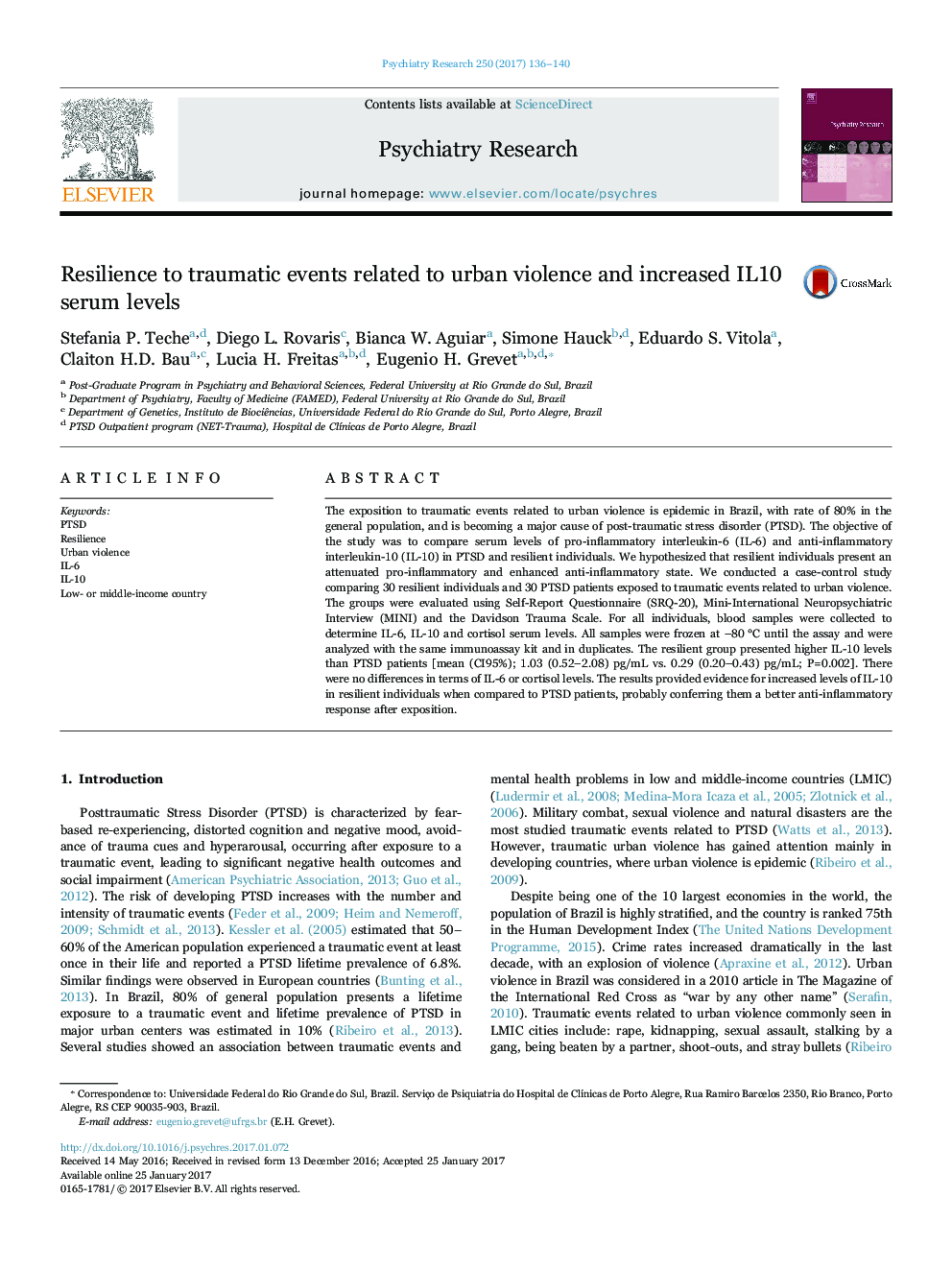| Article ID | Journal | Published Year | Pages | File Type |
|---|---|---|---|---|
| 4933347 | Psychiatry Research | 2017 | 5 Pages |
Abstract
The exposition to traumatic events related to urban violence is epidemic in Brazil, with rate of 80% in the general population, and is becoming a major cause of post-traumatic stress disorder (PTSD). The objective of the study was to compare serum levels of pro-inflammatory interleukin-6 (IL-6) and anti-inflammatory interleukin-10 (IL-10) in PTSD and resilient individuals. We hypothesized that resilient individuals present an attenuated pro-inflammatory and enhanced anti-inflammatory state. We conducted a case-control study comparing 30 resilient individuals and 30 PTSD patients exposed to traumatic events related to urban violence. The groups were evaluated using Self-Report Questionnaire (SRQ-20), Mini-International Neuropsychiatric Interview (MINI) and the Davidson Trauma Scale. For all individuals, blood samples were collected to determine IL-6, IL-10 and cortisol serum levels. All samples were frozen at -80 °C until the assay and were analyzed with the same immunoassay kit and in duplicates. The resilient group presented higher IL-10 levels than PTSD patients [mean (CI95%); 1.03 (0.52-2.08) pg/mL vs. 0.29 (0.20-0.43) pg/mL; P=0.002]. There were no differences in terms of IL-6 or cortisol levels. The results provided evidence for increased levels of IL-10 in resilient individuals when compared to PTSD patients, probably conferring them a better anti-inflammatory response after exposition.
Related Topics
Life Sciences
Neuroscience
Biological Psychiatry
Authors
Stefania P. Teche, Diego L. Rovaris, Bianca W. Aguiar, Simone Hauck, Eduardo S. Vitola, Claiton H.D. Bau, Lucia H. Freitas, Eugenio H. Grevet,
